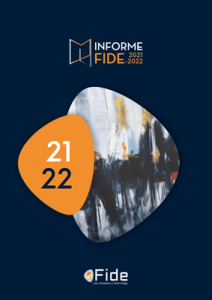
On the occasion of the numerous news that are appearing in the press about people investigated in the most varied judicial processes, and the rejection to which they are subjected socially and financially once their names appear in the headlines of digital newspapers, I believe necessary, from my position as advisor on the prevention of money laundering, from my experience for almost twenty years at the Bank of Spain and the Executive Service of the Commission for the Prevention of Money Laundering and Monetary Offenses (Sepblac) and as responsible for two years of a prevention department of a financial institution, to draw attention to the danger that the lengthy prevention regulations, often contradictory and not very clarifying, make us lose sight of the basis and scope of our participation, as obligated entities, in the fight against money laundering and terrorist financing.
All obliged subjects, from the preventive field, must collaborate by rejecting those clients about whom we have reasonable doubts about the legality of their funds and communicating this information to Sepblac, so that this body, once it has enriched this information, can transmit it to the State security forces and bodies, which will be in charge of arresting criminals: launderers or financing of terrorism.
jannoon028 - http://www.freepik.esNuestro role is key: we are the guardians of the economic system and we must reject the integration of funds obtained through criminal activities. It is about protecting our environment from those who violate the rules that we have all imposed, but who are later interested in the services: legal, financial, enjoyment of luxury goods ... that this Company, which they have previously attacked, offers them .
This is the foundation of the imposition of obligations that are terribly costly for those who have to implement them, and no other. It is not about identifying and expelling clients who are untruthful, unfaithful, foolish, or seized by civil proceedings. It is intended to detect clients whose funds could come from criminal activities. It is this function of defense of the general interest that protects and legitimizes us to inquire and request information and personal documentation, unthinkable in any other circumstance. Consequently, if, for example, from the analysis of this information we come to the conclusion that this client is emotionally leading a “double life”, it should not be an object of concern for the purposes of preventing money laundering. Thus, the regulations prohibit using the information collected within the framework of prevention for any other use.
In order to be able to detect the operations with which the client could try to use criminal funds, we must be attentive to certain risk variables, such as: the client's nationality, adverse public information or the operation carried out.
However, the concurrence of one of these variables cannot be considered as an immediate determining element to qualify the operation or the client as suspect, but must be analyzed in a comprehensive and structured way to conclude, in a reasonable way, the existence of a relationship between the client with illicit funds.
The circumstance that our client appears, according to public information, accused (investigated or prosecuted) in a judicial proceeding, does not support or justify the expulsion of this client automatically from our entity.
During the investigation or investigation phase, it is common for the head of the judicial body to call to declare as accused to a high number of people who finally do not go to be processed in the Oral Judgment, even if they were, it is possible that they will not finally be sentenced.
Therefore, it is necessary to treat this alert as one more variable, discarding imputations of non-economic crimes or assessing whether the possible crime committed affects the legality of the funds generated through the professional activity carried out up to the moment of the imputation. As an example, in the caso of the "black cards," the possible crime committed does not contaminate the funds obtained legally through the professional activity carried out throughout the lives of many of those finally convicted.
The prevention regulations do not protect or legitimize entities to apply an extra-judicial sentence prior to the conclusion of the judicial procedure itself, such as expulsion from the financial system. The obligated subjects have an essential role in an area prior to the judicial one and our mission is not to reject everyone who intervenes in a judicial procedure, we must evaluate that information and if only after having analyzed the caso, we reach the reasonable conclusion that the facts for which they are judged are consistent with suspicious operations or allow us to doubt the funds of which they are the owner, we must notify the operation and put an end to the business relationship.
We have in our minds the names of numerous accused, the last 29 of the order issued by Judge Manuel García Castellón within the framework of the Punic plot on September 2. It is not necessary to mention any of them or any other for the right they have not to be condemned or publicly reviled prior to the resolution of the procedure in which they are involved (Fundamental right to the presumption of innocence).
To conclude, I can only highlight the following:
The fight against money laundering and terrorist financing does not protectIn no way, the entities obliged to impose an indiscriminate control system on the population they serve. The foundation of the prevention of these crimes is to try to distinguish those clients who intend to take advantage of the services that the entity provides to hide the illicit origin of their funds.
The rejection of those clients whose funds do not have a known origin must be carried out after a structured analysis, as described in the regulations (Article 17 of Law 10/2010 and Article 25 of the regulations that develop it) or when the diligence process has not been able to be carried out. carried out successfully (Article 7.3 of Law 10/2010), either because it is not possible to find sufficient public information or because the client has been reluctant to provide sufficient information from which the reasonable legality of their funds can be deduced.
The automatic and general application of rejection rules that do not allow the voluntary contribution of information and documentation by the affected client, which could help confirm the legality and good repute of their professional activity, is a violation of their fundamental rights and an excess of the application of the regulations prevention of money laundering and financing of terrorism by the entity.

Pilar Cruz-Guzman Flores.
Expert in money laundering prevention.




















